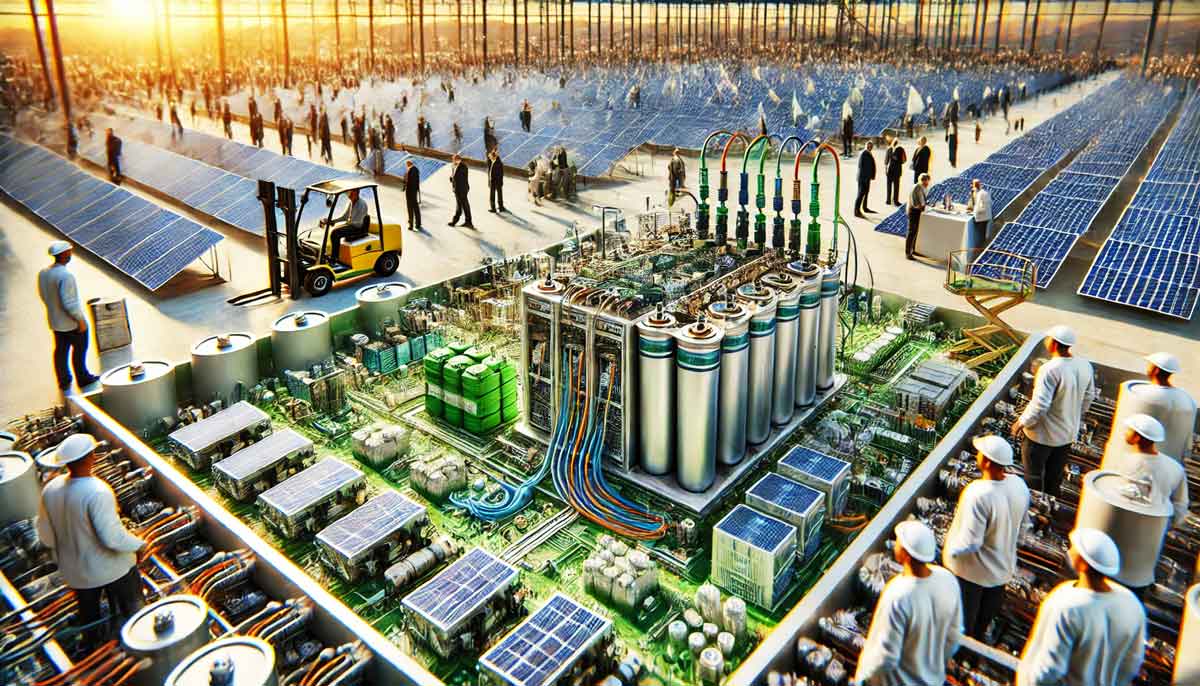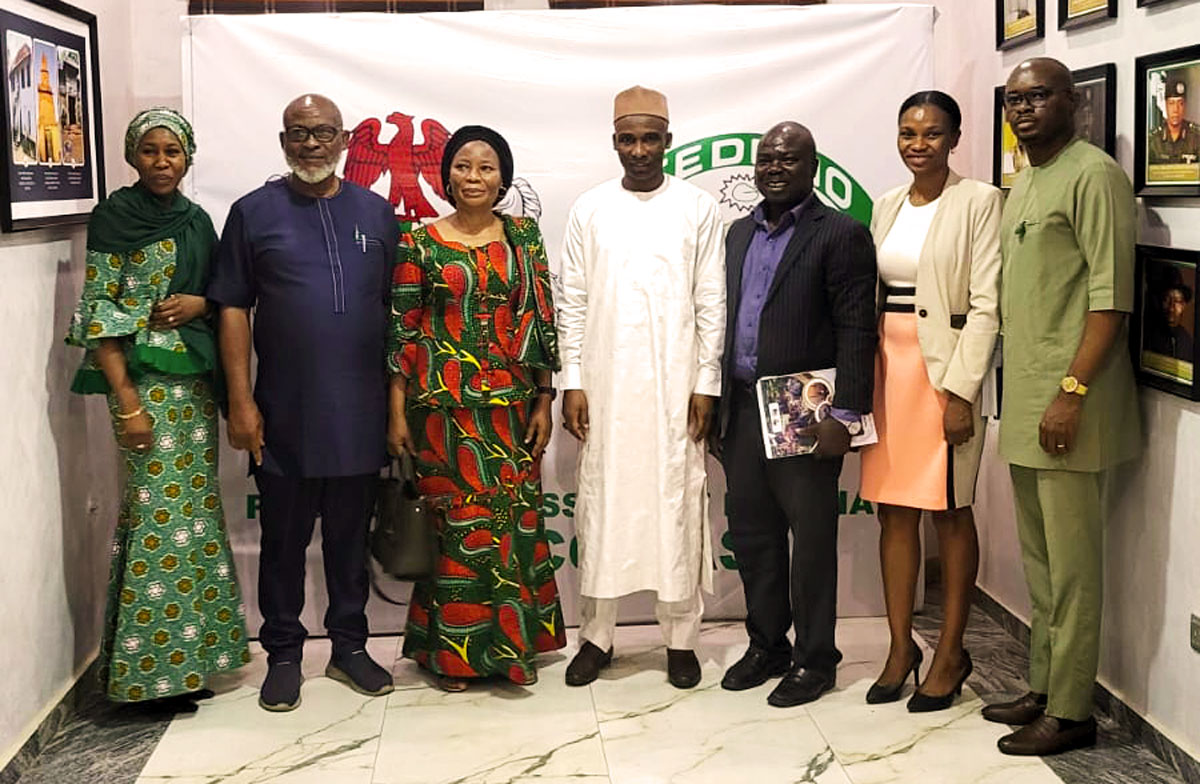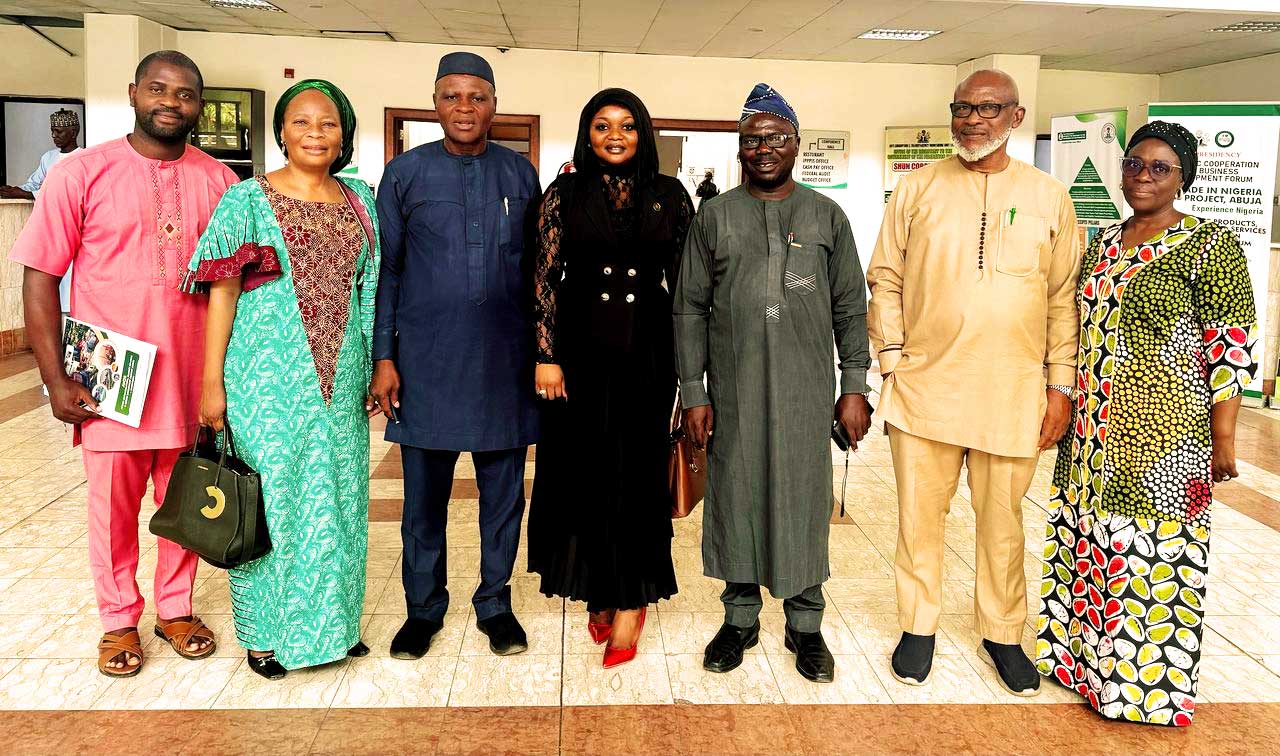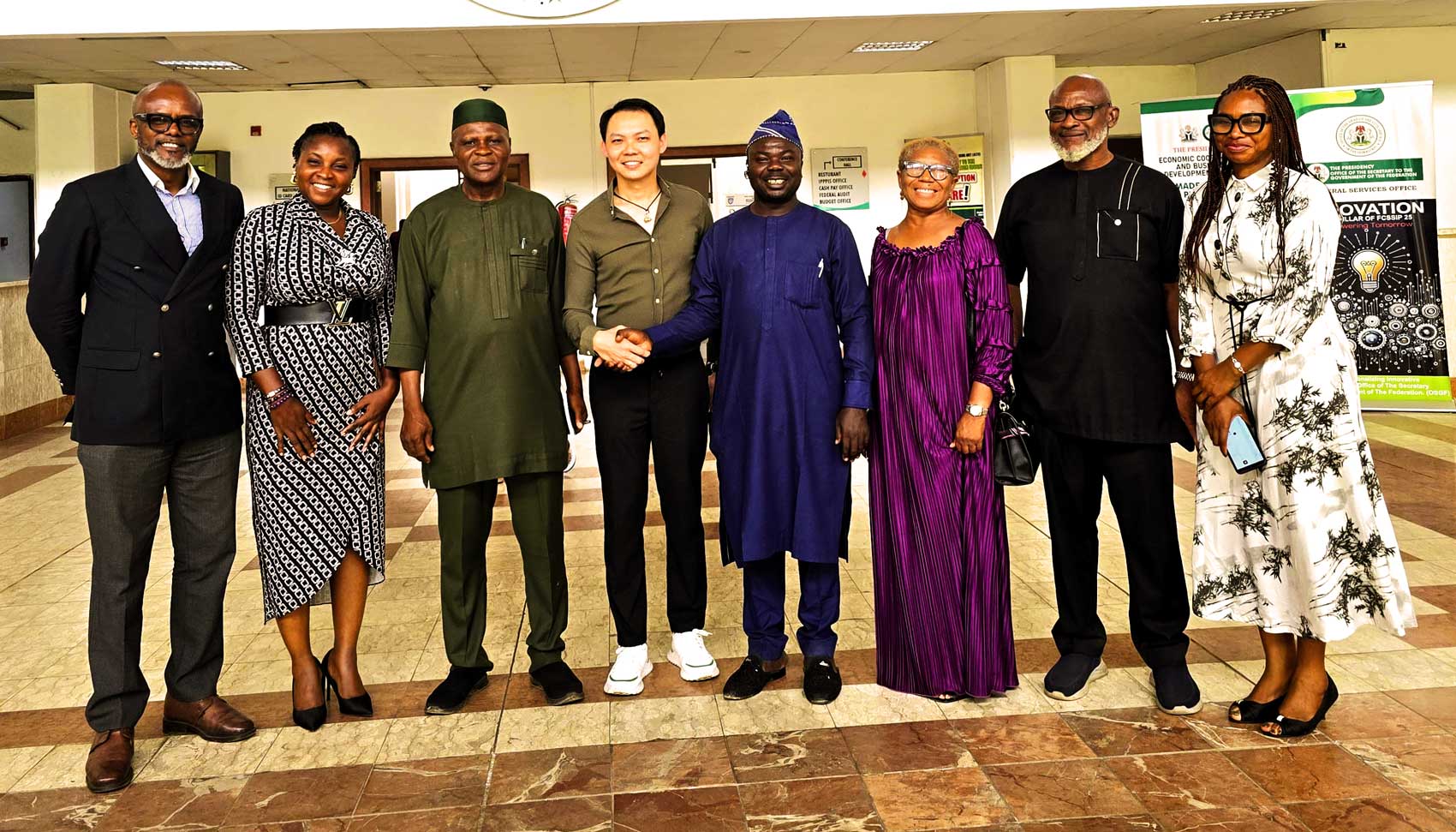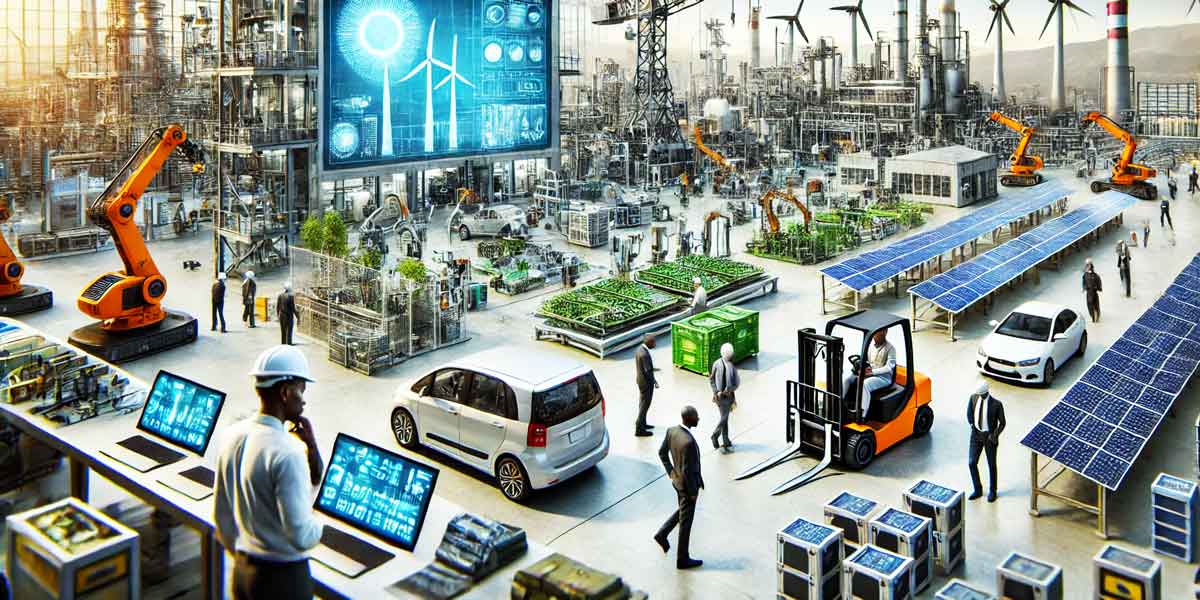Africa is poised for a renewable energy revolution, but one critical challenge remains: how to store the energy generated from abundant solar, wind, and hydropower resources. While the continent is blessed with vast renewable energy potential, intermittent supply and grid reliability continue to hinder widespread adoption. The Africa Multilateral Infrastructure, Climate Change, and Green Investment Summit, AICIS 2025 provides a unique platform to address this challenge head-on by focusing on innovative renewable energy storage solutions that can drive energy independence, support sustainable development, and foster economic growth across the continent.
The Importance of Renewable Energy Storage in Africa
Africa’s renewable energy resources are among the richest in the world. From the endless sun in the Sahara to strong coastal winds and significant hydropower potential, the continent is on the verge of a clean energy breakthrough. However, the intermittent nature of these resources poses a major challenge. Energy storage systems are the key to smoothing out supply fluctuations, ensuring that energy produced during peak times can be stored and used when production drops. This not only stabilizes the grid but also enhances energy access for millions, particularly in remote and underserved areas.
Reliable storage solutions can drive economic growth by reducing reliance on expensive fossil fuels and lowering the cost of electricity. They are essential for industrial development, powering everything from small businesses to large manufacturing plants, and ensuring that communities have a continuous, resilient power supply.
Current Challenges in Energy Storage
Despite its importance, renewable energy storage in Africa faces several obstacles:
- Technological Limitations: Many energy storage technologies, such as lithium-ion batteries, are still in the early stages of deployment in Africa. These systems often require significant capital investment and technical expertise.
- High Costs: The upfront costs associated with advanced energy storage solutions can be prohibitive, especially for developing regions with limited financial resources.
- Infrastructure Gaps: Inadequate grid infrastructure and a lack of supportive policies slow down the integration of storage technologies.
- Environmental Concerns: Improper disposal and recycling of used batteries pose environmental hazards, which must be addressed through sustainable practices.
- Market Uncertainty: The evolving nature of renewable energy markets and regulatory frameworks creates uncertainty for investors, hindering long-term commitments.
Emerging Technologies in Energy Storage
Recent advancements in technology are beginning to overcome these challenges, offering promising solutions that are both efficient and sustainable:
Advanced Battery Technologies
Innovative battery systems, including solid-state batteries and flow batteries, offer higher energy density, longer life cycles, and improved safety compared to traditional lithium-ion batteries. These advancements can lower costs over time and reduce environmental impacts.
Hybrid Energy Storage Systems
Combining different storage technologies—such as batteries with supercapacitors or thermal storage systems—can optimize performance and reliability. Hybrid systems provide a more robust solution for managing energy supply, ensuring that power is available even during extended periods of low renewable output.
Green Hydrogen
Green hydrogen, produced through the electrolysis of water using renewable energy, offers a long-term storage solution. It can be used directly as a fuel or converted back into electricity, making it a versatile component of a future sustainable energy grid.
Distributed Energy Storage
Decentralized storage solutions, such as community-based microgrids and rooftop battery systems, empower local communities. These systems increase energy resilience by allowing regions to store and manage their own power, reducing dependence on central grid infrastructure.
Investment Opportunities and Policy Frameworks
Unlocking Africa’s renewable energy potential requires substantial investment in storage technologies. Investors are increasingly recognizing the economic and environmental benefits of energy storage systems. Key investment opportunities include:
- Green Bonds and Climate Funds: These financial instruments can be directed toward large-scale storage projects, providing the capital needed to modernize grid infrastructure.
- Public-Private Partnerships (PPPs): Collaboration between governments and private entities can lower risks and share the costs of deploying advanced storage solutions.
- Research and Development: Funding innovation in emerging storage technologies can accelerate their commercialization and adoption across the continent.
In addition to financial investments, supportive policy frameworks are crucial. Governments must implement regulations that incentivize the adoption of energy storage solutions, streamline permitting processes, and encourage the recycling and safe disposal of battery materials.
These case studies demonstrate that with the right investment and policy support, renewable energy storage can transform Africa’s energy landscape.
The Role of AICIS 2025 in Advancing Energy Storage
The Africa Multilateral Infrastructure, Climate Change, and Green Investment Summit, AICIS 2025 is the ideal platform for addressing the challenges and opportunities associated with renewable energy storage. At the summit, global leaders, industry experts, and investors will converge to:
- Discuss Best Practices: High-level panels and workshops will share insights on successful energy storage projects and emerging technologies.
- Facilitate Investment: Dedicated sessions will connect investors with project developers, fostering partnerships that drive large-scale storage initiatives.
- Shape Policy: The summit will provide a forum for policymakers to discuss regulatory frameworks that support sustainable energy storage and grid modernization.
- Promote Innovation: Exhibitions will showcase cutting-edge storage technologies, providing a glimpse into the future of a resilient, sustainable energy system in Africa.
Unlocking the potential of renewable energy storage is critical for Africa’s journey toward energy independence, economic growth, and environmental sustainability. As the continent prepares for a future powered by clean energy, innovative storage solutions will be key to overcoming the intermittent nature of renewables and ensuring a resilient power supply.
The Africa Multilateral Infrastructure, Climate Change, and Green Investment Summit, AICIS 2025 is the catalyst for this transformation. By bringing together global and regional stakeholders to discuss, invest, and innovate, the summit will drive Africa toward a future where renewable energy storage forms the backbone of a sustainable, climate-resilient economy.
Join us at AICIS 2025 Nigeria and become part of a revolutionary movement to harness the power of renewable energy storage for a greener, more prosperous Africa.
#AICIS2025 #RenewableEnergyStorage #GreenInvestment #SustainableAfrica #CleanEnergy #ClimateResilience #EnergyIndependence #CircularEconomy #EcoInnovation #FutureOfEnergy
